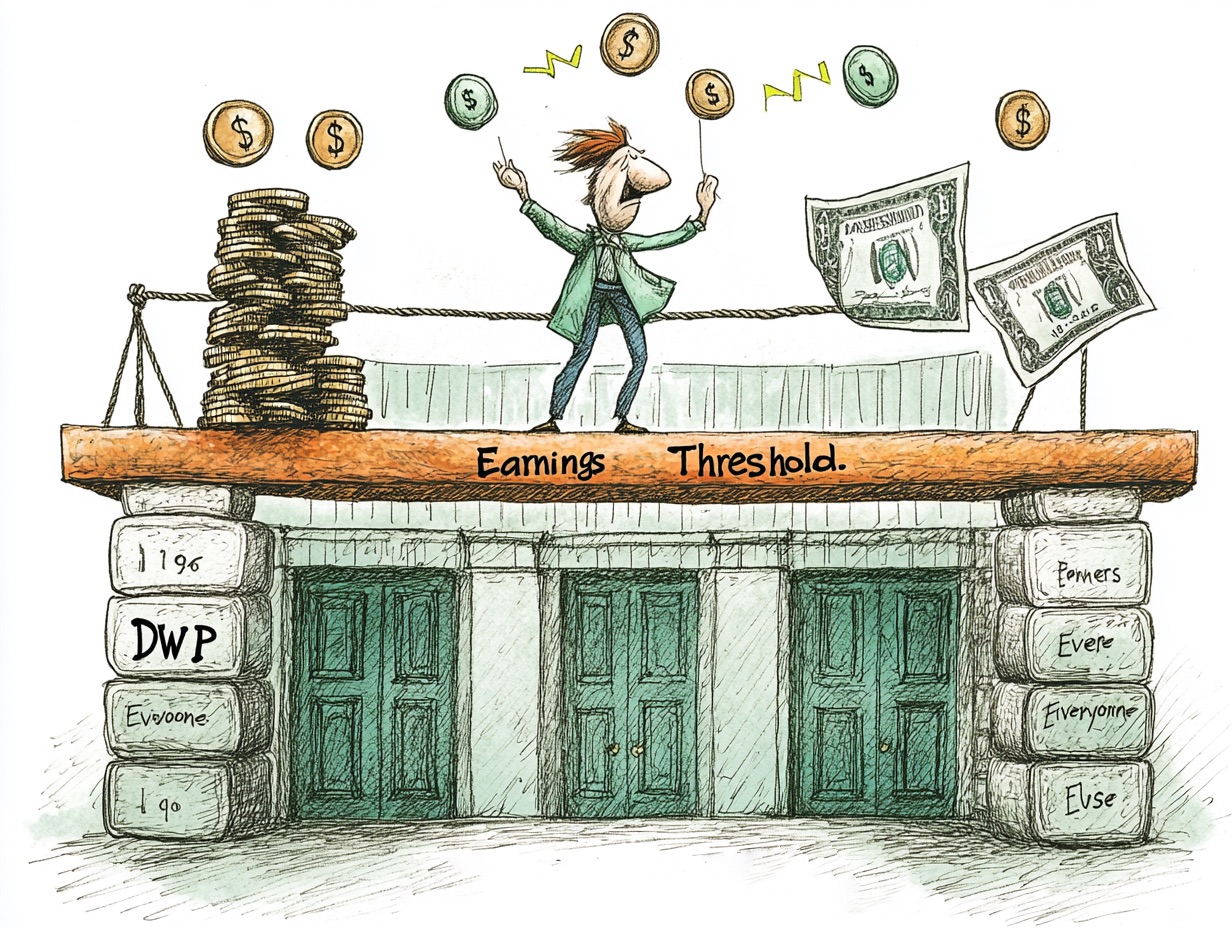Good news, everyone! The Department for Work & Pensions has announced that carers can now work longer hours without losing their allowance! This generosity comes wrapped in a shiny package of benefit increases for millions that somehow manage to be lower than the actual rate of inflation. It's the bureaucratic equivalent of being given a slightly larger thimble to bail out your increasingly leaky boat.
The Great Carer's Allowance Revolution
Let's break down this monumental change:
- Carers can now earn up to £196 per week (up from £151) while keeping their allowance
- The allowance itself increases to £83.30 per week (a princely sum of £11.90 per day)
- An estimated 60,000 additional carers will receive the money by 2029
As carer Stephanie Swann notes in the BBC article, this means she can work "probably only two or three more hours a week" because "the admin around [her disabled son] can be a full-time job."
To put this in perspective, carers like Stephanie provide round-the-clock care that would cost the government thousands per week if provided professionally. In return, they receive £83.30 per week – about what an MP might spend on lunch and taxis in a single day.
Coming Soon to Benefit Hero: The "Earnings Threshold Tightrope" Mini-Game
In our next update, we're proud to announce a thrilling new mini-game where players must balance their working hours to stay exactly £1 below the earnings threshold. Go over by even a few pence, and you'll face our exciting "Total Repayment Demand" crisis event, where you're ordered to repay thousands in benefits over a 20p earnings discrepancy!
The DWP spokesman's quote of "We recognise and value the vital contribution made by carers" will appear as motivational loading screen text.
The Inflation Shell Game
While benefits rise by September's inflation figure of 1.7%, current inflation is running at 2.8%. This clever mathematical sleight-of-hand ensures that benefit recipients become progressively poorer in real terms.
This comes "days after a string of household bills increased, including water charges, energy prices and council tax." What perfect timing! It's like being thrown a slightly smaller life preserver while the waves get higher.
Let's review what this means for Universal Credit recipients:
- Single person under 25: An extra £5.30 a month (approximately one-half of a cinema ticket)
- Couple over 25: An extra £10.50 a month (approximately three cups of coffee)
We're struggling to create an in-game item that costs so little it would adequately represent these increases. Perhaps "Half a Tin of Value Beans"?
Pensioners: The Triple-Lock Winners
Meanwhile, state pensions increase by 4.1% to match rising wages, thanks to the triple-lock. This means:
- £230.25 a week for the full, new flat-rate state pension (up £472 a year)
- £176.45 a week for the full, old basic state pension (up £363 a year)
Work and Pensions Secretary Liz Kendall proudly announces: "Our ironclad commitment to the triple-lock gives pensioners across the country the certainty and security they need to live a full life in retirement."
Translation: "Pensioners vote in large numbers, so we're making sure they get a proper inflation-beating increase, unlike those pesky working-age benefit recipients."
The Fiscal Drag: When Freezing Burns
The article casually mentions that income tax thresholds remain frozen until 2028. This seemingly innocent policy detail, known as "fiscal drag," means that as people's wages rise (even just to match inflation), they'll pay more tax as they're dragged into higher tax brackets.
It's the bureaucratic equivalent of slowly moving the goalposts while pretending they haven't moved at all.
Benefit Hero Patch Notes: Reality Edition
If Benefit Hero were to implement these changes in a game update, our patch notes would read:
- BUFF: Carer's earning threshold increased by 29.8%
- NERF: Benefit values decreased by 1.1% in real terms
- NEW CRISIS EVENT: "Fiscal Drag" - Watch as your theoretical purchasing power slowly erodes while the system pretends nothing is happening!
- ACHIEVEMENT UNLOCKED: "Pensioner Priority" - Successfully implement a system where one demographic gets inflation-busting increases while another gets inflation-crushing decreases
The Bottom Line
In the real world, as in Benefit Hero, the system excels at creating the illusion of generosity while quietly tightening the screws. A higher earnings threshold for carers is genuinely good news, but it's a small improvement in a system that fundamentally undervalues the vital work carers do.
When benefits increase slower than inflation, while bills increase faster than inflation, the mathematics are simple: people get poorer. No amount of positive spin about helping carers work more hours can disguise this reality.
In Benefit Hero, as in life, it's important to read the fine print. That's where you'll discover that "increases" can sometimes mean "decreases" when measured against what things actually cost.
Benefit Hero is a satirical game that pokes fun at bureaucratic systems, not the people caught in them. When a benefits system requires a spreadsheet and a calculator to determine whether you're better or worse off after an "increase," you know the bureaucracy has achieved its final form.
